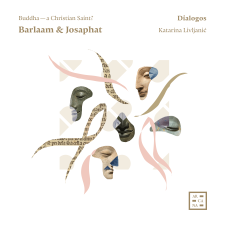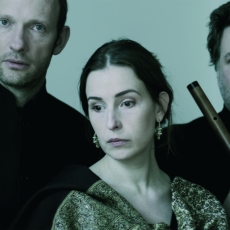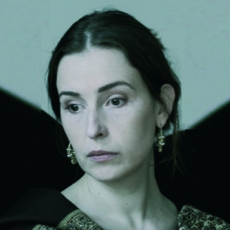Dialogos - Barlaam & Josaphat - MusicWeb International
Unlikely as it may seem, the story of the historical Buddha leaving behind a life of luxury as a prince and finding enlightenment was transmitted from India to Europe in the Middle Ages in a bowdlerized form which saw the Sanskrit word Bodhisattva, enlightened being, transmogrified into the name Josaphat, a man supposedly converted by the saintly Barlaam, itself a name derived perhaps by adduction from the Old Testament character Balaam. ‘Josaphat’ was made into a (non-existent) Christian saint who was expunged from the calendar only in the twentieth century.
It’s not so surprising when one realises the open transmission between different religions in the ancient world; many scholars believe that Jesus may have been open to Buddhist philosophy during the years when the Bible tells us nothing about Him, and may even have travelled to India. The Dalai Lama has pointed to several parallels between the Sermon on the Mount and Buddhist teaching. Sadly, too often the great religions have forgotten their shared values; the Sikh holy book, the Granth Sahib, is a notable exception in containing texts from various traditions which the ten gurus thought valuable to put together.
For this recording Katarina Livljanić, who sings and directs the small ensemble Dialogos (consisting of Albrecht Maurer (fiddle, rebec) and Norbert Rodenkirchen (flutes, harp)), has assembled a selection from a variety of texts in the Bodleian, the French National Library, etc., and reconstructed the music to accompany them. Assembling the texts in Greek, Latin, Old Slavonic-Russian, Old Croatian, Old French, medieval Occitan (the language of the South of France) and Italian was in itself a formidable act of scholarship; bringing the music to life for a modern audience no less so. You don’t need to be a musical or linguistic scholar or share my own weird Anglo-Catholic-agnostic interest in Indian religions to enjoy it all.
The recording will be of interest mainly to scholars; it should be in every University library, but I hope that it will appeal to a wider audience, with the three performers, not least Katarina Livljanić herself, making the music sound as diverse as possible. It’s all delivered in a basically declamatory fashion, but the singing, always very assured, is often dramatic and impassioned. It’s aptly described in the booklet as containing ‘a wide spectrum of nuances ranging from the spoken word to singing’.
The notes in the booklet are detailed and helpful, but there is also an illustrated e-book which can be downloaded separately via a link in the booklet. A theatrical presentation is also in the offing.
I have learned a great deal from this recording – being a snapper-up of unconsidered trifles, especially of a linguistic nature, not least the Old Slavonic word for unicorn, which I’m sure will prove very useful in the continuing Brexit debate, where the concept seems to feature a great deal. More to the point, I found it all so fascinating that I had to listen to it all over again immediately. Even if you don’t follow the texts in detail and simply let it wash over you, as I confess that I did some of the time, the music is always enchanting and often ethereal.
On an earlier recording which we seem not to have reviewed, Katarina Livljanić directs a much larger version of Dialogos, with another ensemble, Kantaduri, sometimes together, sometimes separately, in an equally fascinating set of chants from the Adriatic region. The music stems from the Roman and Orthodox traditions, with Slavonic and Latin alternating. The title Dalmatica neatly refers both to the name of the region and to the distinctive vestment, the dalmatic, worn by deacons in both traditions. Once again, the music is presented in exemplary performances which should prove attractive even to non-specialists – perhaps rather more so than the new recording. (Arcana A395).
At the time of writing I’m awaiting the lossless press-preview files of the new recording, but I believe that if you stream the mp3 from Naxos Music Library you will be more than happy enough to place your order for the CD.
This, then, is music which will have a specialist appeal and be important for scholars, but should also find a wider audience. Dialogos’s earlier recording for Arcana, Dalmatica, is also well worth investigating.


